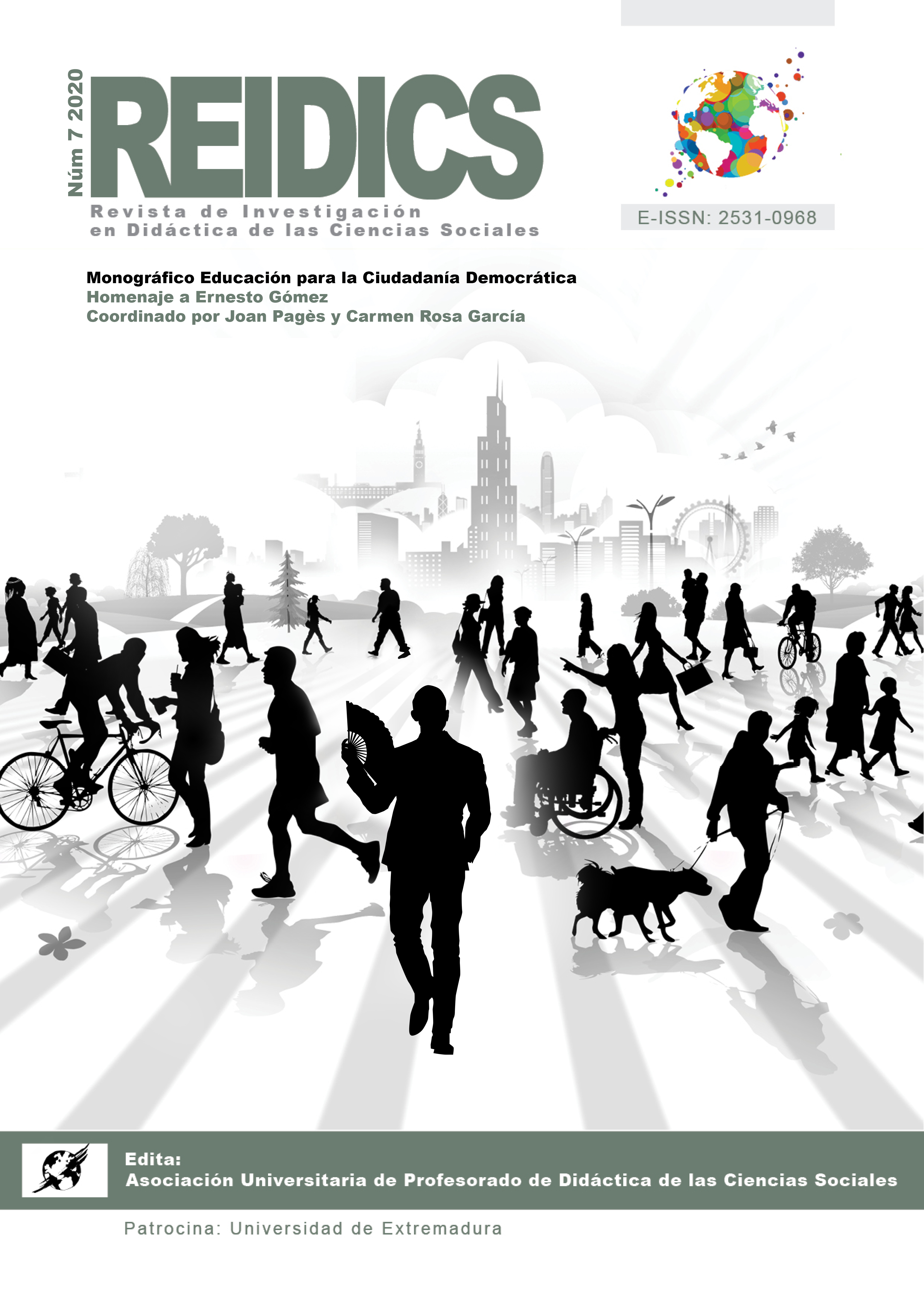Education for Global Citizenship: teacher training at Lisbon Higher School of Education
DOI:
https://doi.org/10.17398/2531-0968.07.45Keywords:
education for development, citizenship education, global citizenship, initial teacher training, competencesAbstract
This article focus on the relation between the guides of Education for a Global Citizenship (EGC), in primary and high school, and the practices of initial teachers training, committed with the development of citizenship skills. The paths done in the frame of ECG in primary and high school are analysed from the official papers References for Development, Students Profile, Essential Competences (Citizenship and Development). The place of ECG in teachers training comes from the analyses of the legislative framework after Bologna. The put in practice of the guidelines in Lisbon Higher School of Education (ESELx) derives from the analyses of the programs and practices in the curricular units where this training is schedule. The analyses of the documents highlights the unclearness of citizenship concept as a praxis, that means, as an action that arises from reflection and critical analyses, directed to transform the reality in which we live, seen as a multilevel dimension. The biggest challenge is the construction of a democratic learning space, mobilizing the all school, with a teaching and learning perspective, living in democracy. Each teacher training institution has to focus on their reality and build a path able to claim or strengthen the ECG dimension in their curriculum. In the case of ESELx some lines were drawn in the sense of ECG reinforcement in the professional masters. The assumptions for this curricular draw are defined in the final reflection of this article.
Downloads
Published
Issue
Section
License
Aquellos autores/as que tengan publicaciones con esta revista, aceptan los términos siguientes:
- Los autores/as conservarán sus derechos de autoría y garantizarán a la revista el derecho de primera publicación de su obra, el cual estará simultáneamente sujeto a la Licencia de reconocimiento de Creative Commons 4.0 BY-NC-SA que permite a terceros compartir la obra siempre que se indique su autor y su primera publicación en esta revista.
- Los autores/as podrán adoptar otros acuerdos de licencia no exclusiva de distribución de la versión de la obra publicada (p. ej.: depositarla en un archivo telemático institucional o publicarla en un volumen monográfico) siempre que se indique la publicación inicial en esta revista.
- Se permite y recomienda a los autores/as difundir su obra a través de Internet (p. ej.: en archivos telemáticos institucionales o en su página web) antes y durante el proceso de envío, lo cual puede producir intercambios interesantes y aumentar las citas de la obra publicada. (Véase El efecto del acceso abierto).
- Los autores y autoras han respetado la política de autoría de esta revista.







